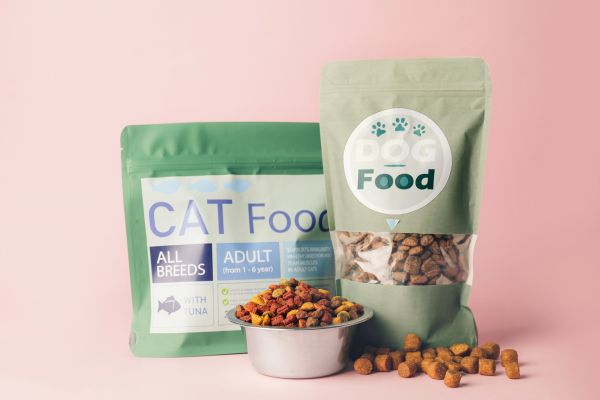Feeding our beloved pets is one of the most important responsibilities we have as pet owners. While commercial pet food offers convenience, many people are now exploring homemade pet food recipes to provide their furry friends with fresher, healthier, and more personalized meals. This shift is driven by a desire to know exactly what ingredients go into their pets’ diets and to avoid artificial additives and preservatives.
Why Consider Homemade Pet Food Recipes?
Choosing homemade pet food recipes gives you full control over your pet’s nutrition. Unlike store-bought options, you can tailor meals to meet your pet’s specific dietary needs, preferences, and even medical conditions. This approach is especially beneficial for pets with allergies or sensitivities to certain ingredients commonly found in processed foods. It also fosters a stronger bond, as preparing food for your pet becomes an act of love and care.
Many veterinarians and pet nutritionists encourage pet owners to consider fresh, balanced meals when done correctly. Fresh proteins, vegetables, and healthy fats can lead to shinier coats, more energy, and better overall health. However, it is crucial to consult a professional before transitioning to homemade meals to ensure your recipes meet your pet’s nutritional requirements.
Essential Ingredients for Homemade Pet Food
When exploring homemade pet food recipes, focus on high-quality ingredients that provide a balance of protein, carbohydrates, healthy fats, vitamins, and minerals. Common protein sources include chicken, turkey, beef, lamb, and fish. Pair these with vegetables like carrots, peas, spinach, and sweet potatoes for added nutrients. Healthy fats such as fish oil or flaxseed oil support a shiny coat and promote brain health.
Avoid ingredients that are toxic to pets, such as onions, garlic, grapes, raisins, chocolate, and certain artificial sweeteners like xylitol. These can cause serious health issues and should never be part of any homemade recipe. It is equally important to cook meats thoroughly to eliminate any risk of bacterial contamination.
Tailoring Recipes for Dogs and Cats
Dogs and cats have different dietary needs, so recipes should be adapted accordingly. Dogs are omnivores and can thrive on a variety of plant and animal-based foods. Their meals should include lean proteins, wholesome grains like brown rice or quinoa, and a variety of vegetables for fiber and antioxidants.
Cats, on the other hand, are obligate carnivores. They require a higher proportion of animal-based proteins and certain nutrients like taurine, which is only found in meat. Homemade cat food recipes should emphasize quality meats and may require supplementation to ensure they receive adequate levels of essential vitamins and amino acids.
Tips for Preparing Homemade Pet Food Safely
Preparing homemade pet food requires careful planning and attention to detail. Start by sourcing fresh, organic ingredients whenever possible. Wash vegetables thoroughly and cook grains to improve digestibility. For meats, proper cooking is essential unless you are following a raw food diet under veterinary supervision.
Portion control is another vital aspect. Overfeeding can lead to obesity, while underfeeding might result in nutritional deficiencies. Monitoring your pet’s weight and consulting a veterinarian about portion sizes can help maintain optimal health. Additionally, store prepared meals properly in airtight containers in the refrigerator or freezer to keep them fresh and safe.
Transitioning Your Pet to Homemade Meals
Introducing your pet to homemade pet food recipes should be done gradually. Abrupt dietary changes can upset their digestive systems. Start by mixing small portions of the new food with their current diet and slowly increase the ratio over one to two weeks. Keep an eye on their energy levels, coat condition, and stool quality during this period.
It is also important to stay consistent with feeding times and avoid feeding table scraps, as these can lead to bad habits and nutritional imbalances. Homemade meals should be prepared with the same care and attention every time to ensure your pet’s health is supported.
The Joy of Homemade Pet Food
Preparing homemade pet food recipes not only benefits your pet’s physical health but also strengthens the emotional connection you share. Knowing that every bite they take is filled with fresh, wholesome ingredients offers peace of mind. For many pet owners, the process becomes a rewarding part of their daily routine, filled with love and intention.
Moreover, pets often show excitement and appreciation for their new meals. Their enthusiasm at feeding time can be one of the most heartwarming rewards for your effort.
Final Thoughts
Homemade pet food recipes can transform the way you care for your furry companions. By investing time and effort into their meals, you ensure they receive nutrition tailored to their unique needs. Always remember to consult with a veterinarian or pet nutritionist before making the switch to homemade food, as professional guidance will help you create balanced and safe recipes.
Incorporating homemade meals into your pet’s diet is a beautiful way to show your love and commitment. With careful planning and dedication, you can provide your pet with delicious, healthy, and nourishing food that supports their long-term health and happiness.

